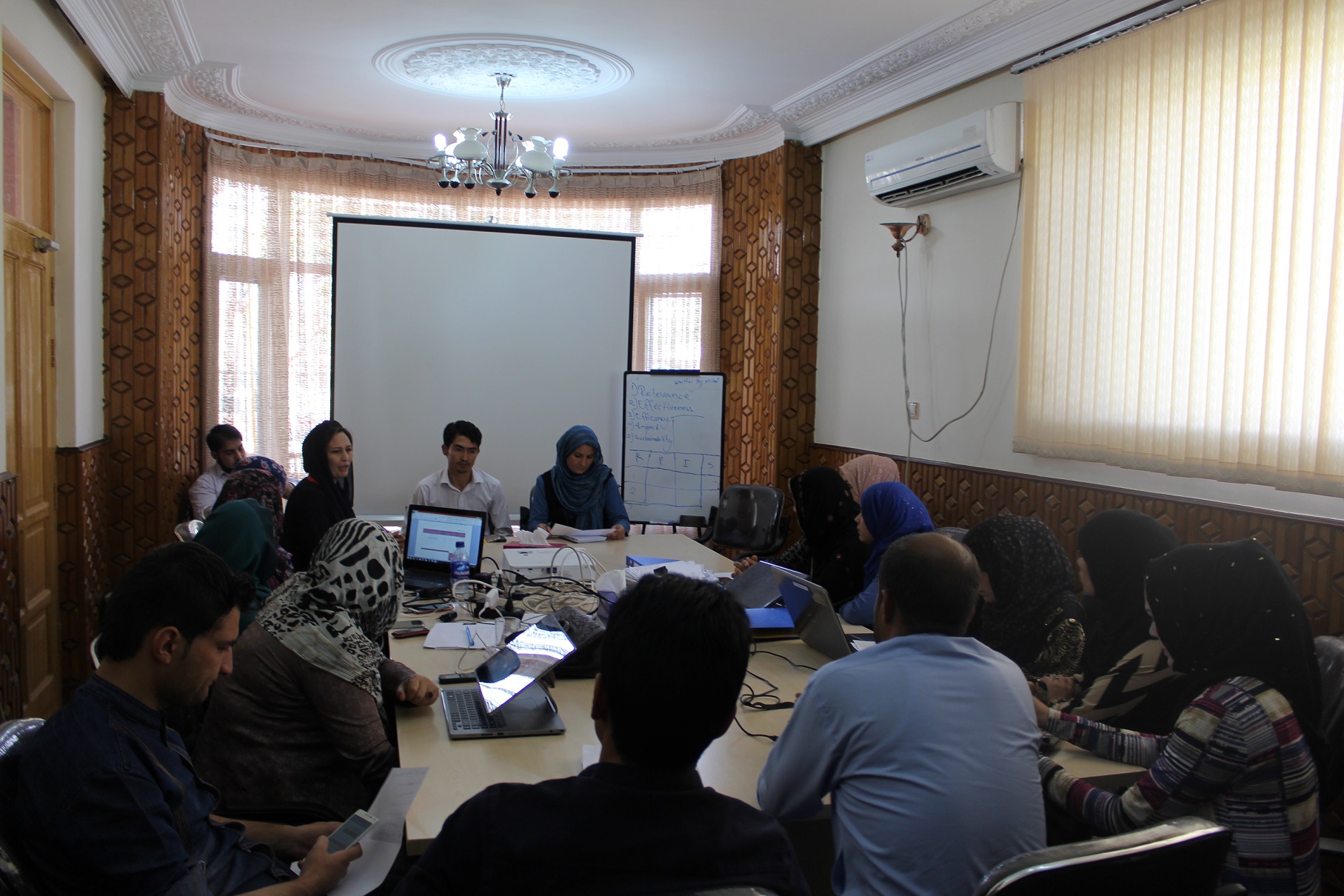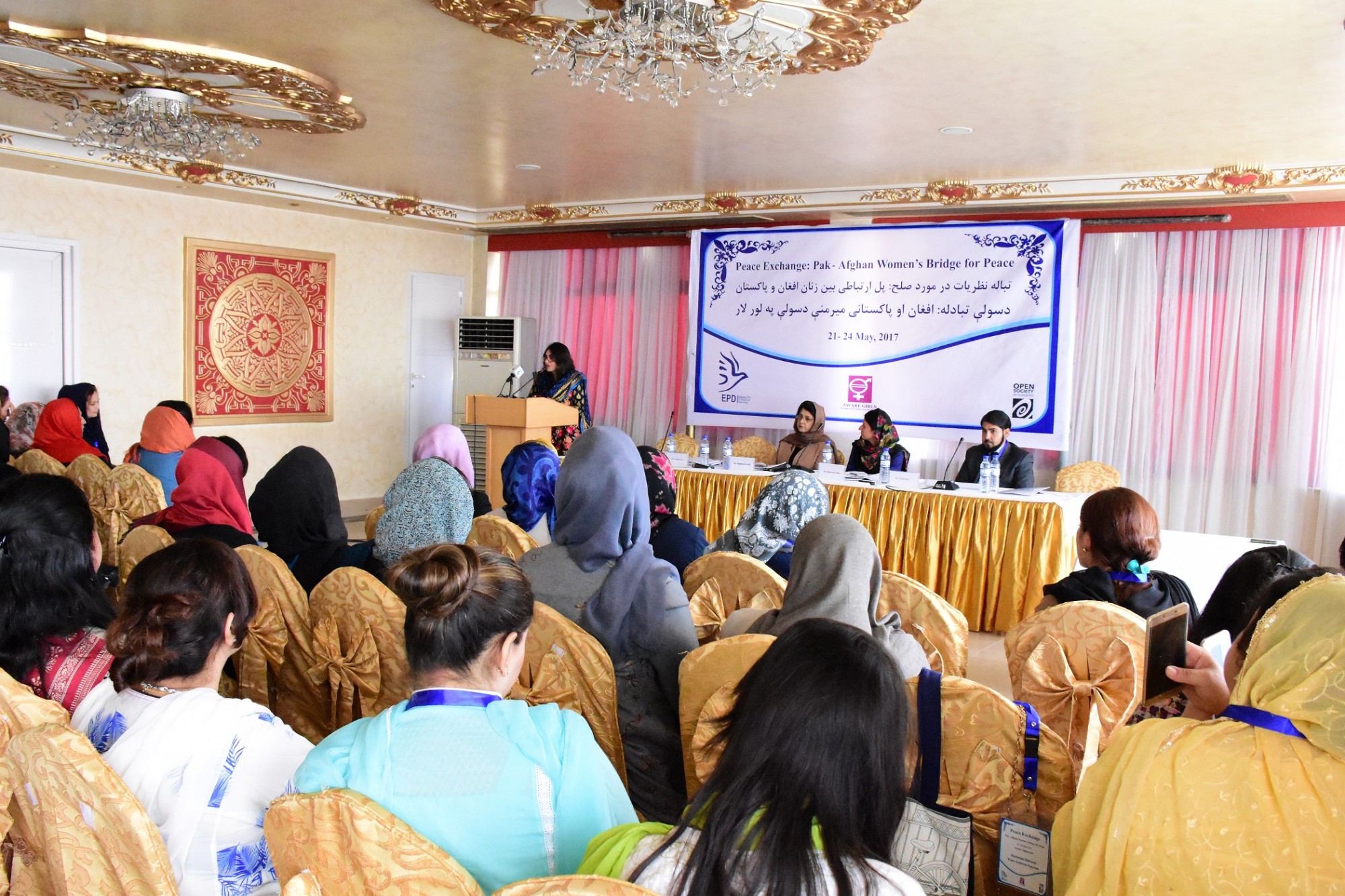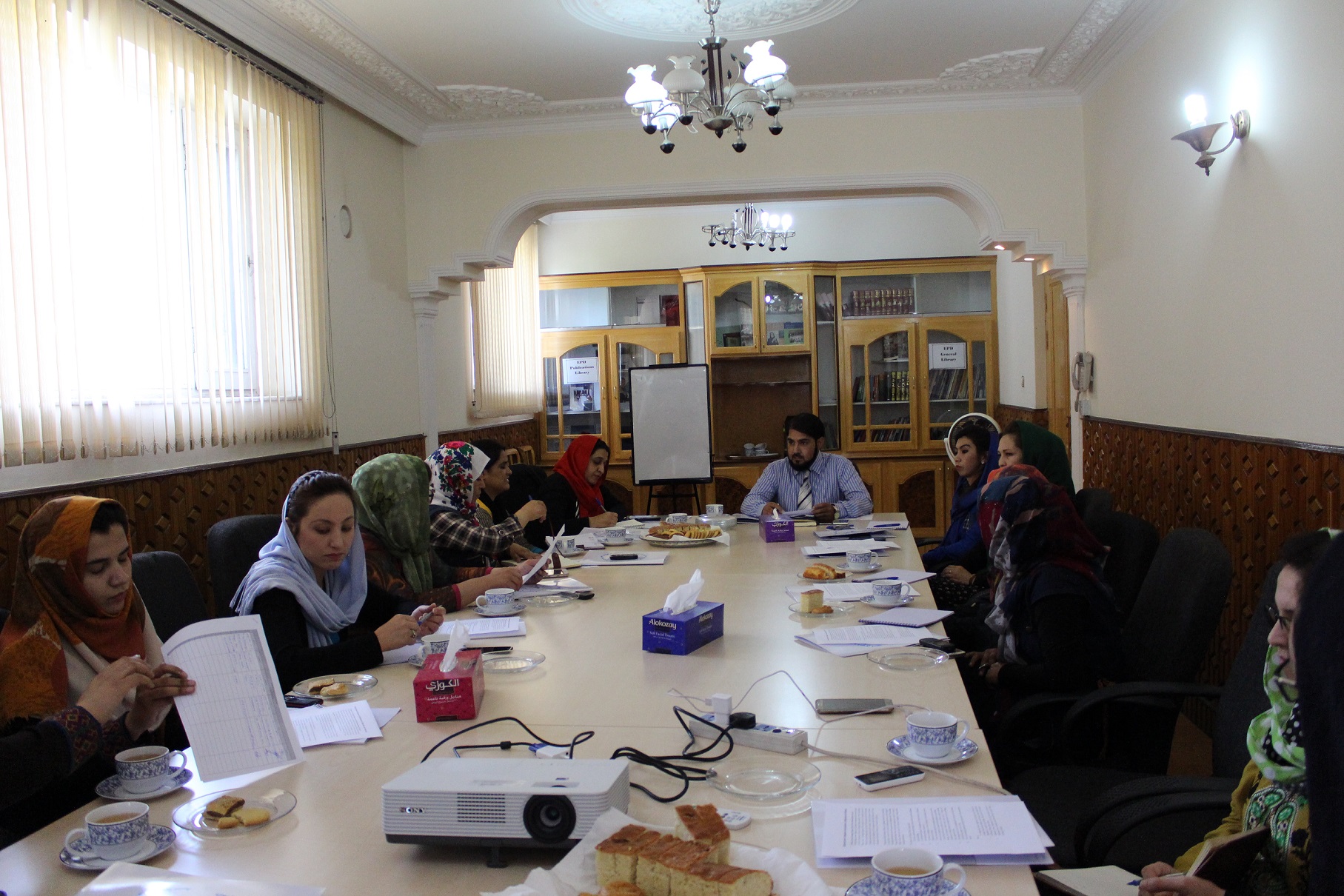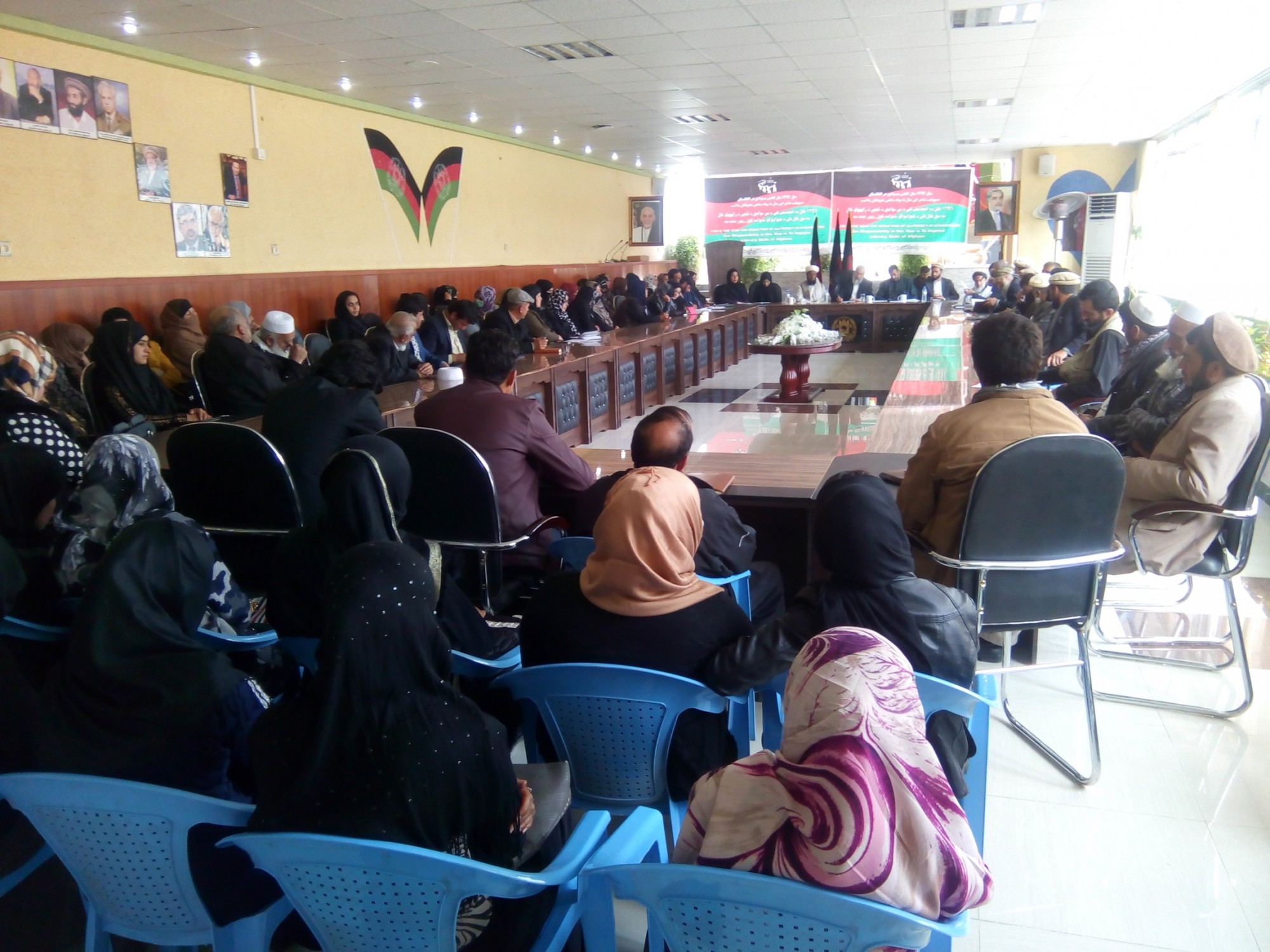From 1st – 3rd August 2017, EQUALITY for Peace and Development hosted a three-day quarterly meeting in Kabul with PWN coordinators and their assistants from 15 provinces of Afghanistan. Over the course of three days, the participants exchange ideas, share experiences and discuss best practices and challenges in organizing their monthly meetings and advocacy activities. The program included a workshop on “Advocacy” conducted by Mr. Maseehullah Farahmand Read More…
Second Round of Women Peace Exchange Program in Islamabad, Pakistan
- 0
- 0
From 17th to 21st July 2017, EPD along with Aware Girls held second round of “Peace Exchange: Pak-Afghan Women’s Bridge for Peace” in Islamabad, Pakistan. The event aimed to create a platform for harbouring bridges between women peace activists of Pakistan and Afghanistan, enabling women-women exchange of learning and strategizing together for countering radicalization and peacebuilding. The event gathered Afghan and Pakistani peace building experts Read More…
TLC Meeting in Sri Lanka – LOGIN
- 0
- 0
Local Governance Initiative and Network (LOGIN) is a multi-stakeholder network spanning countries of East and South Asia, which is supported by the Swiss Agency for Development and Cooperation. The network focuses on promoting knowledge exchange amongst its members on practices, processes and experiences relating to strengthening local governance. Members of LOGIN meet annually in a General Assembly which is held each year in December. Read More…
Peace Exchange- Pak-Afghan Women’s Bridge for Peace
- 0
- 0
From 21st to 24th May, 2017, EPD with financial support of open society Afghanistan held an event on “Peace Exchange: Pak-Afghan Women’s Bridge for Peace” to facilitate interaction among Pakistan and Afghanistan peace activist and take steps to eliminate violent extremism (VE) and radicalization. The event invited around 70 participants including peace activists from Afghanistan and Pakistan, civil society, high peace council, provincial council and representatives Read More…
Conference on Women Economic Empowerment in Herat
- 0
- 0
Legal framework, creation of financial system, provision of basic infrastructure and access to regional cooperation and summits provided access to Afghan entrepreneurs (businessmen and businesswomen) to regional and global markets to start import and export businesses. The private sector development strategy under the ANDS 2007/2008 – 2012/2013 also helped build an enabling environment to bolster private sector and bring investments to Read More…
Peace Activist Network
- 0
- 0
Since loss of lives, physical disabilities, displacement, destruction of houses and infrastructure is being experienced differently among men and women, perception of radicalization and violent extremism varies among the genders. Women and children are the most vulnerable groups to violent extremism. Being excluded from peace process and decision making increases women’s vulnerability. Women both in Pakistan and Afghanistan Read More…
Community-based Monitoring Mechanism
- 0
- 0
The monitoring of service delivery is the job of every citizen. Each of us has the responsibility to make sure that public funds are spent correctly and transparently, intervening where necessary without the use of violence. This is known as community-based monitoring.On 16th April 2017, EPD invited its provincial coordinators from 15 provinces of the country for Training of Trainers (ToT) on “Community-based Monitoring Mechanism” in Kabul. Read More…
Women Economic Empowerment
- 0
- 0
While there is little study of women owned businesses’ contribution as drivers to increase the growth rate of the economies but there is a general consensus that women play pivotal role in development and growth of the economies. If the barriers preventing women from economic participation are eliminated or alleviated, labor productivity could increase by up to 25% in some countries (World Bank Gender Report 2012). Overall, Read More…
Campaign of Eradication of Illiteracy
- 0
- 0
Afghanistan is one of the countries with highest level of illiteracy. It is recorded that 66 percent of Afghans are illiterate and this percentage among women is more critical reaching to 90 percent. Additionally, illiteracy rate is higher in remote and rural areas in comparison to urban places. Illiteracy is a main challenge which emerge as a result of security, cultural, economic and social problems. EPD and its partners all are committed to serve Afghanistan, Read More…
61st Session of the UN Commission on the Status of Women
- 0
- 0
61st session of the UN Commission on the Status of Women is a great opportunity for EQUALITY for Peace and Development (EPD) to share its view on Women, Peace and Security and women empowerment in Afghanistan. This event, taking place at the UN Headquarters in New York City on March 13-24, 2017, intends to discuss women’s economic empowerment, achievements in implementation of Millennium Development Goals and indigenous Read More…










